Christmas for all
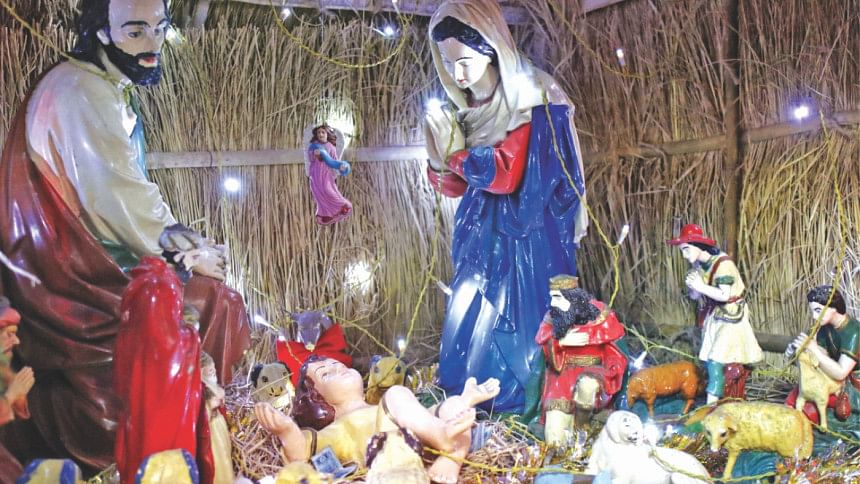
Duriya Ismat Jahan Usha is a nine-year-old student at Cordova School. Like every year, her excitement grows as December 25 comes around. There's only one question on her mind— "Will Santa get me the Barbie or the Play-dough set I always wanted?" Quite a dilemma for this young one and much like Usha, this kind of suspense has taken over a lot of young Dhakaites. Usha's ten-year-old brother Shaan has taken matters into his own hands to welcome Santa. "Some would say Santa could not come to Bangladesh as it doesn't get as cold as the North Pole here but I plan to switch on the fan in my room despite the cold, to make Santa comfortable," says little Shaan. As these young toddlers await Santa's arrival, we, from all religious norms, get ready to welcome the celebration of Christmas, with delicious cakes, soothing carols, beautiful decorations and hearts full of love.
Christmas or Boro Din, as we call it in Bangla, has always been a time of festivity in Bangladesh. Like every other major festival, Christmas is not only celebrated by Christians here but everyone from every other religion gets to embrace this Holy celebration. Christmas in Bangladeshi households have their own uniqueness and essence. Be it food or Christmas carols, Boro Din's celebrations involve a mix of our individual cultural features and some themes borrowed from the West.
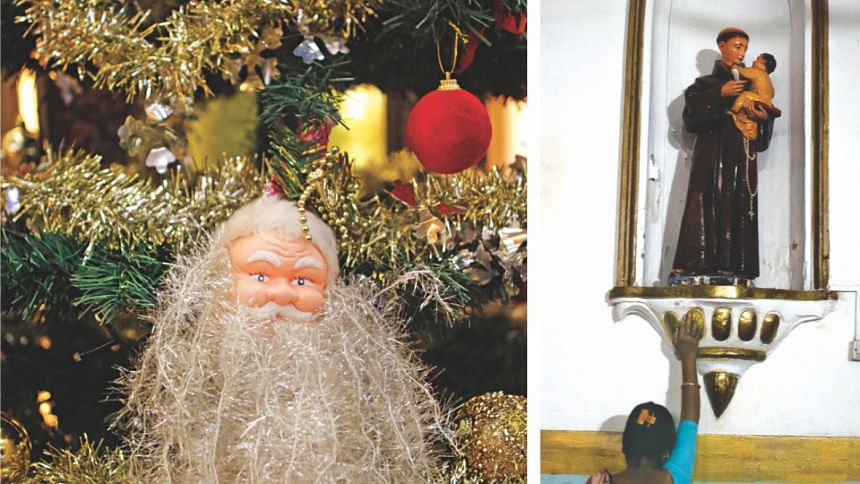
The celebration of Christmas, in this part of the world, goes back to the Sultanate period. The Portuguese missionaries and traders in Porto Grande built the first church in Chittagong around the 16th century. As years passed and finally Jesuits opened their mission in 1600—Mughal and then Colonial Dhaka became home to many Armenians, Greeks, Catholics and Anglicans. As the Christian population grew, so did the celebration. "My Christmas celebration goes back to the late 1950's," says Afroza Banu, retired English teacher of Udayan Higher Secondary School. "I remember my sister and her husband used to decorate the household with lights and fresh flowers. It was hard to get a Christmas tree then so we would sometimes even decorate an ordinary tree." Back then Christmas was celebrated with close friends and family in a homely environment. "The best part was going to Holy Cross Church for the Mass and listening to the soothing tunes of the carols."
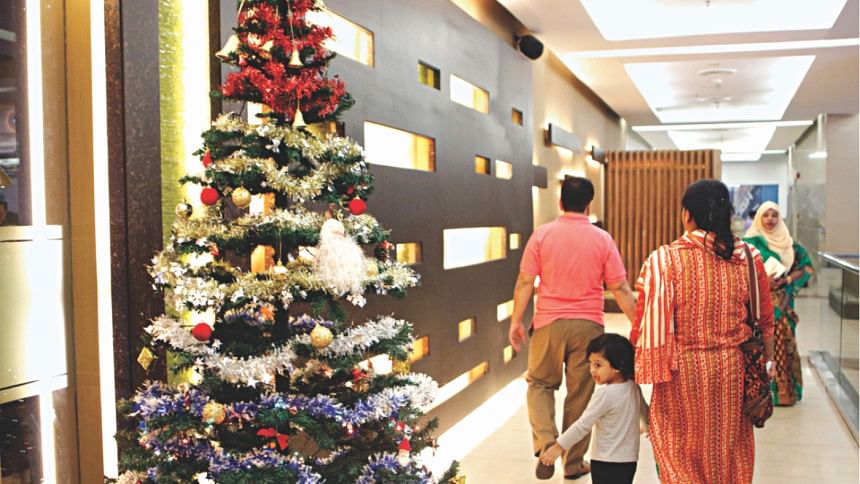
The spirit of the Holy celebrations is amplified in official colonies and neighbourhoods. In Motijheel AGB Colony, Christmas was no less than any other big festival. "For us kids of the colony, Christmas was all about food and gifts," says Director Golam Sohorab Dodul. "From the first week of December we used to go door to door around the neighbourhood to collect funds for a cake. This was done by us 6 to 12 year olds and on Christmas Day all the kids of the colony would cut the cake followed by an exchange of gift cards." Their celebration, most of the time, ended with a small homely cultural programme where the kids would perform.
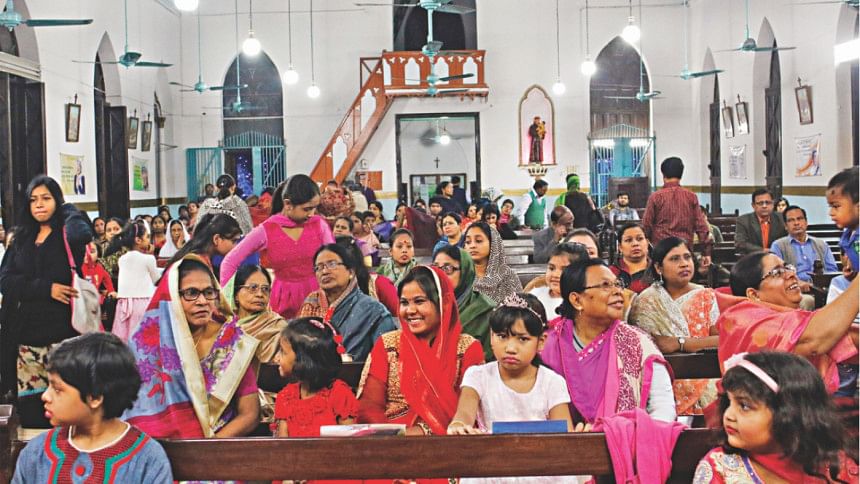
One Bengali tradition which spreads around Christmas in rural areas is the tradition of Kirtans. In Bengali Christmas culture, the kirtan is performed with a singer who leads the song and everyone else follows them. The songs start off slowly but gets faster with time. The whole act is done with people in a circle, with the leader standing in the middle. This tradition is still seen in rural places, especially in village schools and colleges. "Our hostel's Christmas celebration used to begin with a cultural programme were students of all ages and religions used to perform," says Shipra Chowdhury, former student of Bharateswari Homes. "On Christmas Eve we all used to lend a hand on making the food which were to be served after the programme." Shipra's favourite memory of Christmas is dancing on stage on Tagore's 'Shokatore Oi Kadiche Shokole'; a song written about Jesus Christ.
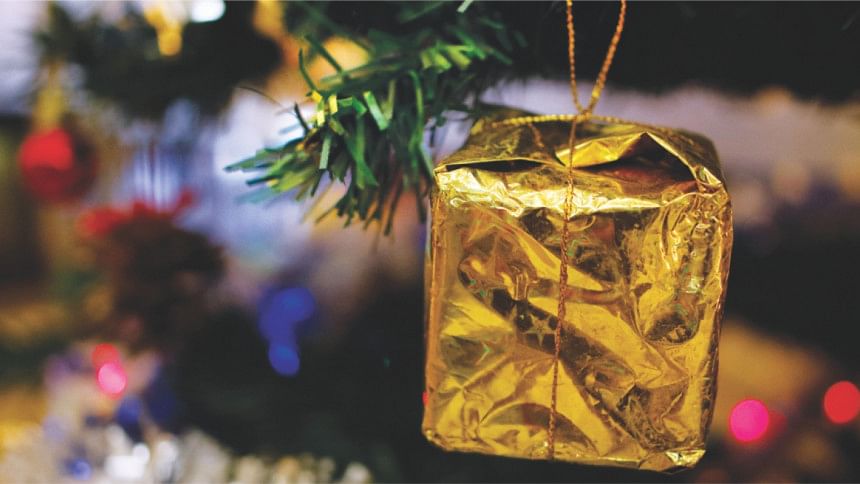
Now, in this day and age, we see the spirit of Christmas among everyone. With the help of the mass media, Santa has become a household name among children who are learning to adapt celebrations around the world. As the big day comes closer, we Dhakaites witness the preparation of Christmas trees, festoons, flowers, twinkling fairy lights and of course Christmas cooking. Though eating out on Christmas is quite popular these days, people who don't want to miss the comfort of a homely 'adda' organise dinner parties with family and loved ones— much like the newly married couple Naziat and Shafayat. "This year we have invited all of our friends for dinner on Christmas Eve," says Naziat Tashfee, working as a banker at Standard Chartered Bank. "After weeks of discussions between me and my husband, we have finally decided on a menu. It will also be the first time I cook for a crowd so, fingers crossed!" The fun aspect of Christmas was and still is the Christmas cake. As the big day approaches, bakeries all around began to showcase their mouthwatering Christmas special delicacies. "Though there are many bakery options nowadays, we want our cake to be something special," says Shafayat, an executive at a multinational company. Shafayat, who has a soft corner for history, plans on buying his Christmas cake from the Prince of Wales Bakery– a cake shop located in Laxmibazar, which goes back more than hundred years.
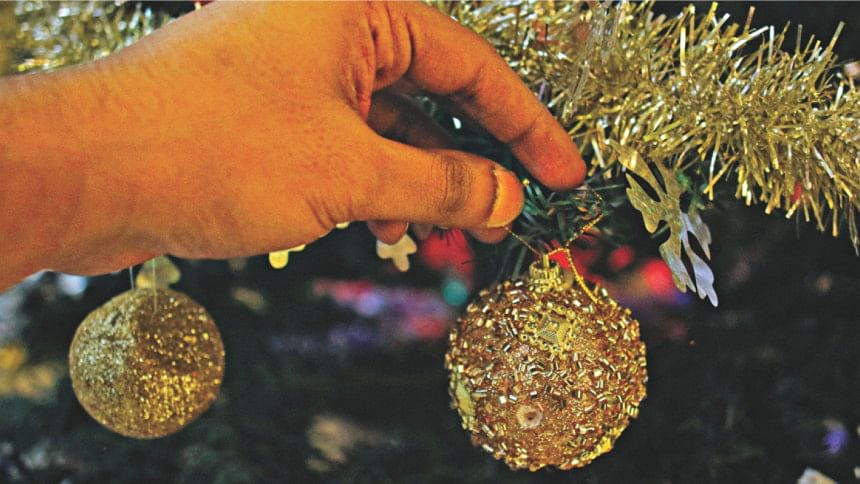
Television and Radio stations also get ready to welcome this festive day with new programmes catering to audiences. Many celebrity talk shows, tele-films are in order to cater to the festive viewers. "We have sought out a Christmas play list for the entire day, and also celebrity talk shows are being prepared," says Rakiba Zaman, radio jockey at Spice FM.
Christmas will conclude this year's festivities and as this brings the year to an end, we Bangalis prepare ourselves to sign off the year 2016 with nothing but love for one another. To everyone who's indulged into the spirit of celebration— we from Star Weekend wish you a Merry Christmas.

 For all latest news, follow The Daily Star's Google News channel.
For all latest news, follow The Daily Star's Google News channel. 



Comments